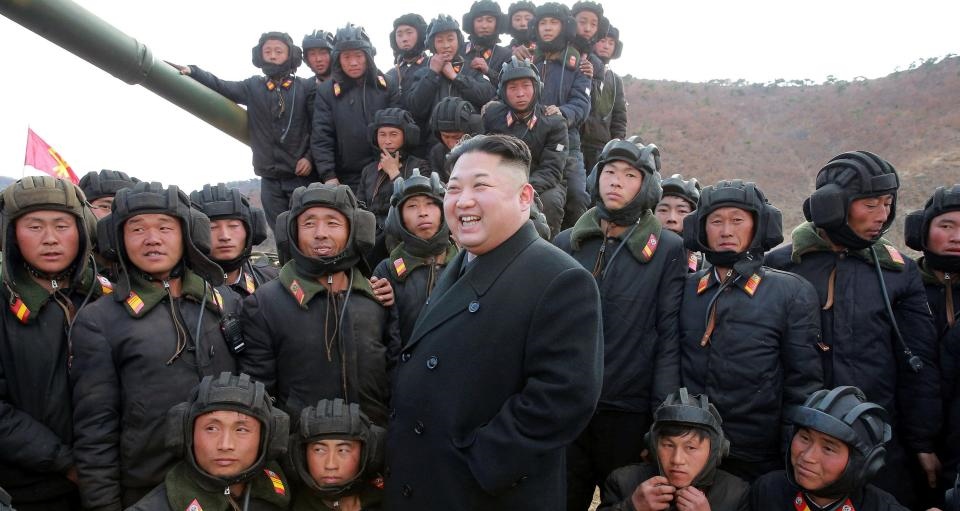North Korean Juche
October 27, 2017 | Expert Insights

In a bid to become more self-reliant, North Korea is reportedly developing facilities to scale up its production of algae.
According to 38 North, a website focused on North Korea that’s part of the Johns Hopkins School of Advanced International Studies, this will allow the nation to address malnutrition and could become an unexpected resource for energy.
Background
North Korea is one of the most isolated and secretive nations. Since the time it was formed in 1948, it has been de-facto ruled under a totalitarian government. The country has been governed by the same family. From 1948 to his death in 1994, Kim Il-sung was the leader of North Korea. After his death, his son Kim Jong-il took over. During his regime, the country suffered from and had a poor human rights record. After his death in 2011, his son Kim Jong-un has taken over.
Much like the country itself, its economy is also hard to gauge. The three leaders of the country has so far resisted economic reforms. The government has experimented with a few market reforms but mainly administers a system of centralized planning and state control of the economy. The CIA World Factbook said China accounted for an estimated 67.2% of North Korea's exports and 61.6% of imports in 2011. South Korea accounted for 19.4% of exports and 20% of imports, and India received an estimated 3.6% of exports and the European Union provided about 4% of imports in 2011.
The North Korean program has especially been a concern for the international community. In 2017, North Korea has launched 22 missiles in the span of 15 tests. It has increased its military activity since July of 2017 when it test launched two intercontinental ballistic missiles (ICBM). In August 2017, North Korea flew two missiles over Japan. The nation called it the “first step” in its Pacific operations. In September 2017, the nation has conducted its sixth nuclear test to date.

Analysis
The UN has imposed sanctions on the isolated nation twice in matter of few months. The latest round of sanctions that have been imposed on North Korea are among the harshest to be imposed on the nation. There is now a ban on textile exports and a call to reduce oil imports by 30%. There is also a ban on hiring North Korean workers overseas.
North Korea has managed to circumvent these sanctions so far. The nation reportedly uses Hong Kong as its primary destination to conduct illicit activities and for money laundering. For a detailed look at how front companies in Hong Kong have aided money launderers from North Korea, click here. It has also continued to generate revenue through business agreements with African nations (click here for details).
38 North, a website focused on North Korea that’s part of the Johns Hopkins School of Advanced International Studies has revealed in a note that North Korea is possibly interested in developing algae as “a strategic resource.” The note said, “It is not surprising that the North Korean government is developing thousands of rural open ponds producing algae and bigger and more sophisticated sites, whose purpose increasingly looks like algae production.”
North Korea is developing its algae production in order to become more self-reliant. When processed, algae boasts high protein content, making it an excellent food supplement and fertilizer. Algae can be used to develop superfoods and is often used in developing nations to combat malnutrition. The note added, “The same algae can also contain approximately 20 per cent lipids, which can be processed into biofuels.”
Thus, with increased algae production, North Korea could develop a method to not only feed the millions living in the country but also use it as a source of fuel.
The note stated, “If there were just 100 times more acreage in production and being utilized, the oil yield could be 6.5 per cent of North Korea’s 2014 estimated requirements for their entire economy. Given the potential for algae-based oil production, a more thorough investigation is warranted of whether these facilities could in the future fulfil a national security requirement.”
The team at 38 North have calculated that given the current facilities prevalent in North Korea, the nation can produce 2,851 tonnes of algae biomass each year. That could be converted to the equivalent of 4,075.6 barrels of oil.
Assessment
Our assessment is that North Korean authorities are trying to ensure the nation does not end up crippled due to the sanctions. This is in line with the nation’s main ideology – Juche. The ideology states that only a self-reliant and strong nation can achieve true socialism. As North Korea’s relationship with China continues to decrease, it continues to push for Juche.








Comments